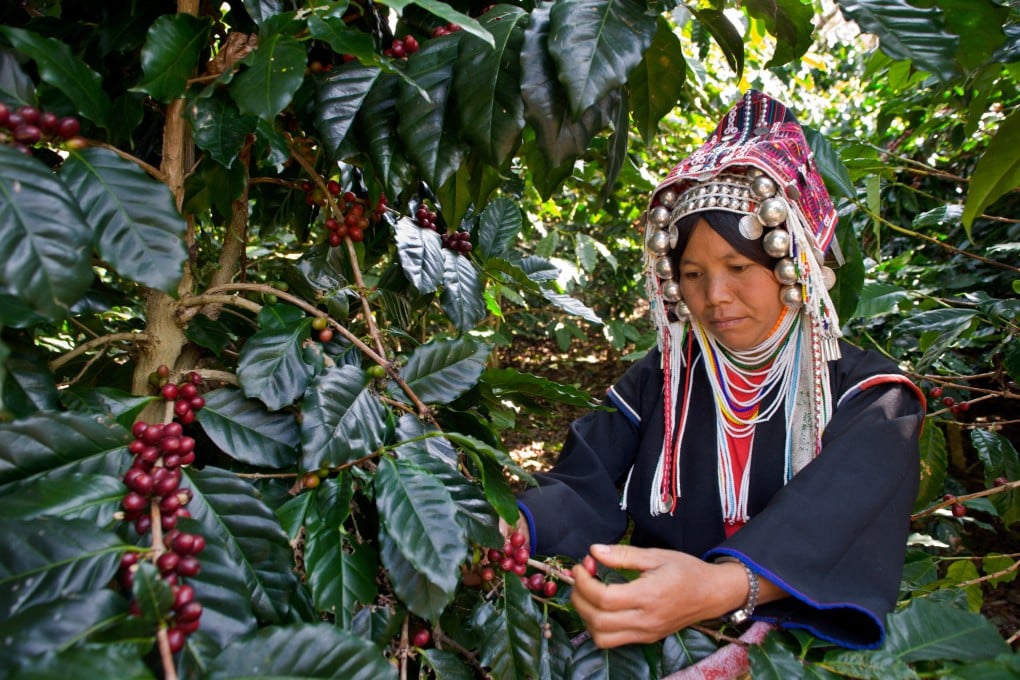The Thai coffee growers who used to farm opium, cultivating beans where poppies once bloomed
- As demand for coffee soars in Thailand, many of the northern hill tribes that used to farm opium have switched to cultivating coffee beans
- The crop is bringing relative prosperity to these once poor communities, some of which are now producing high-quality beans praised for their flavour

A meandering path slithers through rugged terrain in a hilly backwater of northern Thailand before dipping into a vale fringed by thick undergrowth.
This outlying place, sheltered from prying eyes, is where some residents of a nearby hill-tribe hamlet grow their poppies. When they’re in bloom the plants adorn the dale, now home to two wayward water buffaloes, with photogenic red and white flowers.
But the local tribespeople who eke out a living as subsistence farmers don’t grow the plants for their blossoms. They do so for the milky latex in their bulbs, which has narcotic and analgesic properties.
The opium they derive from the poppies, which is illegal in Thailand, serves medicinal purposes in the community. Some older villagers also use it recreationally, puffing away languorously on handcrafted pipes with a faraway gaze in their eyes.
This vale in Thailand’s hilly north lies near the fabled Golden Triangle – a geographic confluence also including Myanmar and Laos – that was once an epicentre of opium production. These days, though, thanks to a decades-long battle against the opium trade and royally sponsored crop substitution projects, fields of poppies are rare in northern Thailand.
Instead, it’s another cash crop that now dominates much of a verdant landscape peopled by a myriad of hill tribes with their multicoloured costumes beloved by tourists. That crop is coffee, which too gives a boost, but in the form of a legally sanctioned stimulant.